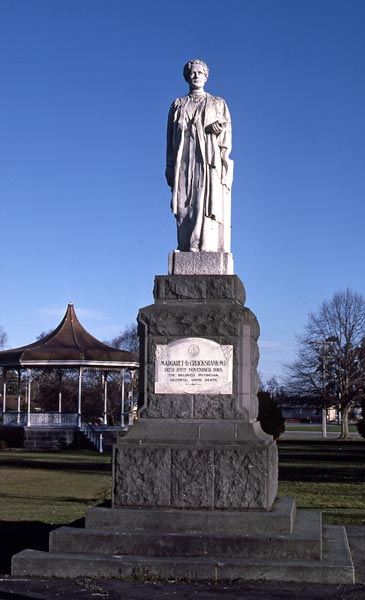And also for Doctor.
Daisy is an only child; an oddity at a time when large families were the norm. She’s a bright and imaginative girl, taking after her grandmother Amy in many ways, and cherished by her extended family.
Daisy’s War looks at the experience of family members left to manage the farms during World War I, with so many of the men away. In the next book (still a work-in-progress), the family faces the challenge of the 1918 Influenza Pandemic, which in a two month period killed almost half as many New Zealanders as the four years of the war had done.
Daisy has dreams even larger than her grandmother’s: she wants to be a doctor. In early 20th century New Zealand this is a large ambition, but Daisy is determined.
She’s inspired by tales of woman doctors, including that of Margaret Cruickshank, who was New Zealand’s first registered woman doctor.
Dr Cruickshank worked in the town of Waimate, in practice with a Dr Barclay. When the epidemic struck Waimate, Dr Barclay was still away on active service, and Margaret was managing the practice on her own. Her driver fell ill, but she continued to travel the district, by horse and gig or by bicycle, doing what she could for the sick. She even milked cows for some of her patients, in households where there was no one else to help.
By the time she caught influenza herself, her strength had been badly depleted. She died on 28 November 1918. The town of Waimate had a marble statue put up in her honour, inscribed with:
The Beloved Physician
Faithful unto Death
 |
| Jock Phillips. ‘Memorials and monuments – Civilian memorials, 1900–1945’, Te Ara – the Encyclopedia of New Zealand |

Permalink
A really interesting post, thank you for sharing. Nice to follow and connect
http://aimingforapublishingdeal.blogspot.co.uk/
Permalink
Thanks for your visit!
Permalink
I will definitely add Daisy’s War to my reading list. A lot of history seems to talk about the violent events but ignores some of the true heroes. Margaret Cruickshank sounds inspirational.
Permalink
I do find myself particularly interested in how the people left at home managed – it’s certainly something we hear less about. It must have been such a struggle, particularly for women left on their own, on top of their anxiety for their loved ones.
Permalink
What a champion for women and what women can do!
Permalink
Absolutely! She was an amazing woman, and must have been an inspiration to many. No wonder the town loved her, and wanted her to be remembered.
Permalink
These women pioneers amaze me. It’s tough enough to be a woman in some professions nowadays, it’d have been hell in those days.
Permalink
Yes, to have so much opposition and disapproval to cope with on top of the sheer difficulty of the work. They showed quite astonishing strength.
Permalink
Sounds very interesting! Will add it to my TBR pile.
Damyanti Co-host, A to Z Challenge 2014, Latest post on Daily (w)rite
Twitter: @damyantig
#atozchallenge
Permalink
🙂